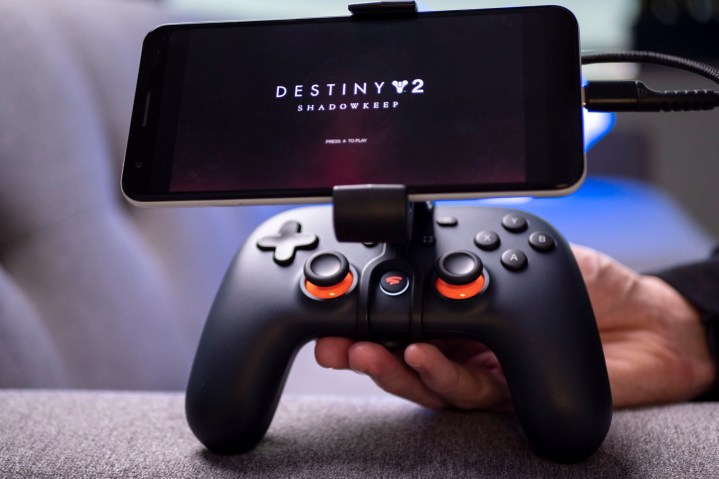
Google’s Stadia video game streaming service hasn’t exactly had the best launch. It first became available in November to those who purchased the Founder’s Edition, but a low number of initial games and performance issues didn’t give us much hope for the future. With a new bonus Buddy Pass offer available to subscribers, it’s becoming even clearer how badly Stadia is struggling.
Announced on December 16, the Stadia bonus Buddy Pass allows you to give a second free three months of Stadia Pro access to a friend, on top of the one that was already offered with the initial purchase. This is available to anyone who purchased the Founder’s Edition, and they’ll be given access to Destiny 2: The Collection, as well.
Services that have built up sizeable user-bases would not be giving away three-month subscriptions such a short time after its launch. Google is doing everything in its power to make sure players want to try Stadia out — if you watched The Game Awards last week, you likely saw several advertisements for it during the show. These commercials barely mentioned the games available on the service, but rather that the service exists and doesn’t require a console. Given that Microsoft revealed an enormous new Xbox during the same ceremony, it appears they have very different ideas of what players want.
Microsoft seems to have the better idea, if player counts are any indication. Just days after Stadia’s launch in November, fewer than 20,000 people were playing Destiny 2, despite it being a free inclusion with the Founder’s Edition. This is far fewer than PlayStation 4, which had more than 450,000 players, and Xbox One, which managed 331,000 despite the console falling significantly behind PS4 in total sales.
We do not have concrete subscription numbers on Stadia at this time. Google representatives did not immediately reply to Digital Trends’ requests for information.
Stadia isn’t down and out just yet, as the service will be getting exclusive games through Google’s new internal studio and advertised features such as save-state sharing are still on the way, but it’s going to be facing much more competition in the future. If it can’t prove itself against PS4 and Xbox One, it will have an even harder time when Project xCloud, EA’s Project Atlas, and potentially even an Amazon game streaming service are also available.
Editors' Recommendations
- Google Stadia has started issuing refunds — here’s what to look for
- This Google Stadia exclusive is trapped on the service due to port ‘complexity’
- Google Stadia shutting down in January and users are getting full refunds
- Google gives LG TV owners three free months of Stadia Pro
- Tencent and Logitech are making a cloud gaming handheld device

